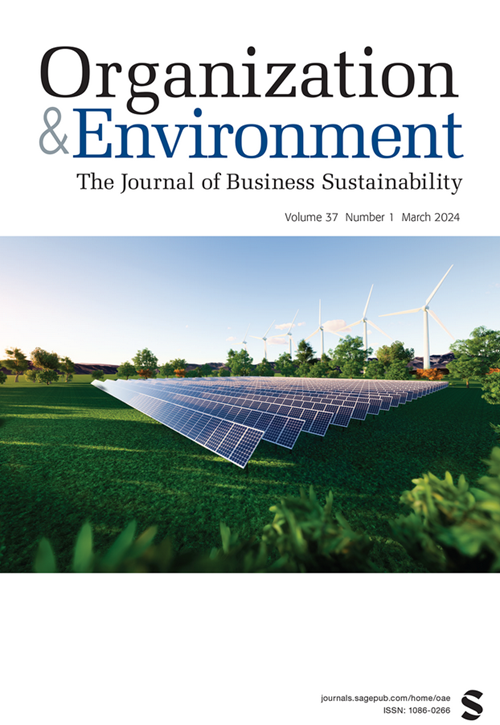公司和国家特有优势:更好地了解跨国公司在国际舞台上的环境绩效
IF 7.3
4区 管理学
Q1 ENVIRONMENTAL STUDIES
引用次数: 2
摘要
国际多元化主要被认为与跨国企业的环境绩效存在混合(正或负)线性关系。从这一假设出发,我们利用企业特定优势(FSA)和制度理论假设,由于重组障碍,国际多元化与跨国公司的环境绩效呈曲线U型关系。由于它们作为国家特定优势(CSA)的助推器的关键作用,我们还考察了母国竞争力和环境水平是否调节了所提出的曲线关系。2006年至2017年间,来自11个部门21个不同国家的298家跨国公司的面板数据结果支持了主曲线关系和母国竞争力的调节影响。我们的研究对人们普遍认为的国际多元化总是对环境记录产生积极或消极影响的假设提出了质疑,从而为国际商业文献做出了贡献。本文章由计算机程序翻译,如有差异,请以英文原文为准。
Firm- and Country-Specific Advantages: Towards a Better Understanding of MNEs’ Environmental Performance in the International Arena
International diversification is predominantly assumed to have a mixed (either positive or negative) linear relationship with environmental performance in multinational enterprises (MNEs). Departing from this assumption, we use firm-specific advantages (FSA) and institutional theory to hypothesise that international diversification, due to recombination barriers, has a curvilinear U-shaped relationship with MNEs’ environmental performance. Because of their key roles as boosters of country-specific advantages (CSA), we also examine whether home country competitiveness and environmental levels moderate the proposed curvilinear relationship. Results from panel data of 298 MNEs between 2006 and 2017 from 21 different countries in 11 sectors provide support for the main curvilinear relationship and the moderating influence of home country competitiveness. Our study contributes to the international business literature by casting doubt on the widely held assumption that international diversification always carries either positive or negative effects on environmental records.
求助全文
通过发布文献求助,成功后即可免费获取论文全文。
去求助
来源期刊

Organization & Environment
Multiple-
CiteScore
11.20
自引率
5.70%
发文量
19
期刊介绍:
Organization & Environment encourages informed discussion about the social roots and consequences of environmental problems and stimulates deeper reflection on the meaning and significance of the natural world. By critically examining the impact of human production and consumption systems on the natural environment, Organization & Environment develops new perspectives on organizations that encourage environmentally sensitive reflection, inquiry, and practice.
 求助内容:
求助内容: 应助结果提醒方式:
应助结果提醒方式:


